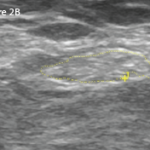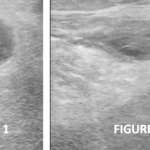NEW YORK (Reuters Health)—Total knee replacement (TKA) is increasingly being performed in younger patients, and new research suggests that these patients have a higher risk for complications than older patients.
“The number of knee replacements we are doing in younger and younger patients keeps increasing every year and we need to let these patients know that their failure rate is potentially higher,” Mark Figgie, MD, orthopaedic surgeon at the Hospital for Special Surgery in New York, says in a phone interview with Reuters Health.
Dr. Figgie and colleagues reported their observations in a poster March 12 at the American Academy of Orthopaedic Surgeons (AAOS) annual meeting in Las Vegas.
Using a national insurance database, they compared early complication rates and revisions between seven age groups spanning younger than age 40 up to age 90 and older undergoing primary TKA. The analysis included 114,698 patients.
Patients younger than 40 had higher rates of diabetes, inflammatory arthritis and drug abuse, and were more likely to smoke compared with the rest of the cohort (P<0.001).
After controlling for baseline comorbid conditions, patients younger than 40 and those aged 40 to 49 had an increased rate of early mechanical complications, with odds ratios of 2.84 (P=0.01) and 2.95 (P<0.001), respectively. Readmission rates at 90 days were also significantly higher in patients younger than age 40 (OR 1.63; P=0.03), as well as those over age 90 (OR 1.51; P<0.001).
Additionally, patients under 40 years of age were more apt to need early revision surgery. The revision-free rate at five years was 77% in those younger than age 40, compared with 89% in those 40 to 49, and 92% in those 50 to 59; P<0.01).
“These outcomes may be used to shape preoperative counseling for the young patient,” the investigators suggest in their meeting abstract.
“The younger patients tend have more challenging problems. They are heavier, more diabetics, more inflammatory arthritis, more failed ACL reconstructions, so previous surgery. Younger patients didn’t have a higher infection rate; mechanical problems and early failure were the biggest issues,” Dr. Figgie comments.
The study had no commercial funding and the authors have no relevant disclosures.

